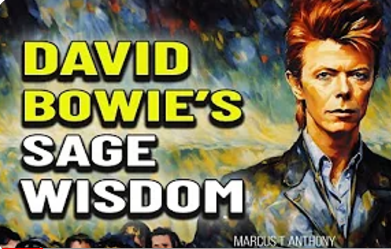Is China coming to devour us? An alarming article written by John Garnaut in the Sydney Morning Herald (“Australia counters Chinese threat) brings to attention the views of Edward Luttwak, described as a “strong an influential adviser to the Pentagon.” Luttwak says that Australia and the US see China as their biggest threat, and regardless of official statements, their policy is designed to counter the rising influence of China in the Pacific region. China, it is stated, is flexing its muscles, expanding its regional and international power in lieu of its rapid economic rise.
Luttwak, who probably failed Diplomacy 101, had the following to say about China:
”The rapid accession to prosperity has been a very common way for countries to lose their sanity,” Mr Luttwak told the Herald. He said China suffered from ancient and new foreign policy weaknesses. ”The Chinese are autistic in dealing with foreigners, they have no sense of the ‘other’,” he said. ”They think they are incredibly brilliant strategists as if they had been conquering other nations, when in fact it’s been the other way around for 1500 years.”
Is there any truth to what Luttwak says? Yes, it’s all true actually. China has long had a poorly developed sense of its place in the world. There is a strong civilisational sense of superiority, and Chinese leaders often overestimate their own capacities. These things are common arguments found in many books on Chinese history, including many written by Chinese people themselves. In fact there are a lot worse things commonly written about China, but let’s not get into that here.
Here is my essential point. All nations, cultures and religions have a dark side. And certainly we should acknowledge those and develop proactive policies to address those where necessary. Yet if we are to build a future world where nations and cultures are going to live together in peace and mutual respect, we need to introspect and acknowledge our own attitudes and prejudices. And Edward Luttwak has a whole heap of those in terms of his attitudes towards the Chinese. Luttwak’s mental projections towards the Chinese can be summarised as follows
“Sneaky little bastards! You can’t trust these people. They’ll stab you in the back first chance they get. Get them before they get us! You Chinese think you are superior? We are the superior race. Fuck you!”
Likewise Australia billionaire James Packer wants to open every door to every Chinese investor. Packer who has been highly critical of Australian policy towards China. Yet he has his own agenda: money and power. He owns half of Macau, the tiny Chinese territory near Hong Kong which has now become one huge casino.
You don’t need to be a self-proclaimed intuitive like me to pick this stuff up. (You can read my intuitive profiles if you want to understand how I do this).
It’s equally important that when we listen to leaders and political experts, especially when there are important futures at stake, that we don’t get sucked into their projections. When we don’t assume responsibility for our individual mental projections, the result is “Drama” – conflict with those around you. When groups and nations fail to acknowledge their collective “issues” you get people, cultures, religions and countries punching and scratching each other’s eyes out.
Introspecting on our own projections is simple. Anybody can do it. It just takes a little courage to expose your shadow – to yourself. That so few of our leaders and the general public are capable of doing this points to a failure of our education systems, and our parenting skills. If Lutwak had done this, he would not have been ranting about how “autistic” China is. Instead he would have proudly announced to his assembled audience: “The following views are those of an old knob with unresolved trust issues ,and who still has his head stuck in the nineteenth century. So here I go…”
But in the absence of the proper guidance, you still have one potent weapon of insight. Your own intention. Nobody can stop you looking in the mirror. Nor, as an intuitive, into the souls of others. Trust your gut instincts. Too many people listen to old twerps telling them who they should hate.
Marcus
PS if you are interested in knowing how to develop intuitive intelligence, I go into this in detail in my book Discover Your Soul Template.
[retweet] [twitter name=”marcustanthony1″] [stumble]
Here’s the link and article in full.
Date
September 22, 2012
John Garnaut is The Age and Sydney Morning Herald’s China correspondent.
AUSTRALIA has been quietly building a regional defence coalition to restrain China’s increasingly ”aggressive” and ”autistic” international behaviour, an influential adviser to the Pentagon says.
Edward Luttwak bluntly contradicts Australian and US denials that they see China as a threat or want to contain its rise.
”Australians view themselves as facing a strategic threat,” he writes in his coming book, The Rise of China v The Logic of Strategy.
The emerging latticework of regional defence arrangements augments ”the overall capacity of the US-Australian alliance to contain China”.
The book praises Australia’s strategic initiative in forging ties with countries such as Malaysia, Indonesia and India that lie beyond America’s natural security orbit, as well as broadening the defence networks of close US allies such as Japan
”Each of these Australian initiatives derives from a prior and broader decision to take the initiative in building a structure of collective security piece by piece, and not just leave it all the Americans,” it says.
Mr Luttwak is a consultant to the Pentagon’s in-house think tank, the Office of Net Assessment, and has high-level access to Chinese and US military officials. His book, to be published in November, stems from a research project commissioned by the ONA’s 91-year-old director, Andrew Marshall, the Pentagon’s ”futurist-in-chief”.
China’s impact on Asia-Pacific security has been on display this week after it hardened territorial claims over the tiny Japanese-administered islands known as Senkaku in Japan and Diaoyu in China. The dispute weighed on financial markets in both countries as investors factored in a risk of war.
”If necessary, we could make the Diaoyu Islands a target range for China’s Air Force and plant mines around them,” said General Luo Yuan, in the state-run Global Times.
A professor of Japanese studies at Beijing Foreign Studies University, Zhou Weihong, said China was ”testing” its new-found economic and military power and the results were not yet in.
The Australian National University’s Hugh White has argued that the US needs to ”share power” with what is going to be ”the most formidable power the US has ever faced”. But for Mr Luttwak, the ”logic of strategy” dictates that neighbours will naturally coalesce against the new rising threat, thus preventing China from realising anything like the relative military power that has been projected.
”The rapid accession to prosperity has been a very common way for countries to lose their sanity,” Mr Luttwak told the Herald. He said China suffered from ancient and new foreign policy weaknesses.
”The Chinese are autistic in dealing with foreigners, they have no sense of the ‘other’,” he said. ”They think they are incredibly brilliant strategists as if they had been conquering other nations, when in fact it’s been the other way around for 1500 years.
While Mr Luttwak’s critique will challenge prevailing understandings in Western policy circles, it echoes criticisms in China itself.
A spokeswoman for the Defence Minister, Stephen Smith, said: ”It is not possible for a country or countries to contain another country with a population of 1.3 billion. The shifting strategic influences must be managed by the international community …”
Mr Luttwak also took James Packer to task for urging Australia to show more ”gratitude” towards China.
Mr Packer, whose casino businesses in Macau and Australia are underpinned by Chinese gamblers, told a conference last week that ”China has been a better friend to us than we have been to China”.
Mr Luttwak praised Australia’s top diplomat, Dennis Richardson, for rejecting ”Packerism”. ”Packer should shut up … because if a country as prosperous as Australia has to compromise its values for the sake of business then what is it that we can ask of poorer countries.
”If a country as rich as Australia needs to appease the Chinese when the Chinese misbehave then, then it has no dignity.”
Mr Luttwak said: ”I don’t know anybody important here who wants to start a war with China, and I don’t know anybody important who wants to follow the Packer line.”







3 thoughts on “Are the Chinese coming to get us?”
Comment
And I don’t know anybody in China (they’re all important – just ask them, they’ll tell you) who doesn’t want to start a shooting war with Japan.
5,000 years of (agri)culture coming at youse laowai bastards!
Well, Lei Feng, I never said many people in China are immune from their own projections. We both know how true that can be! The anti-Japanese riots are the perfect example – even though they were clearly orchestrated by the authorities to deflect attention away from political stuff.